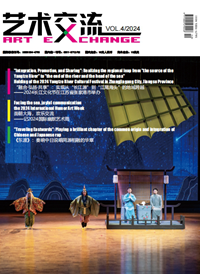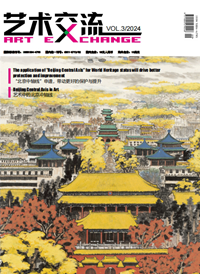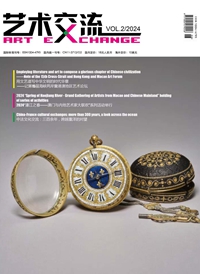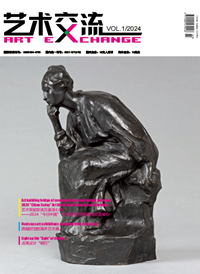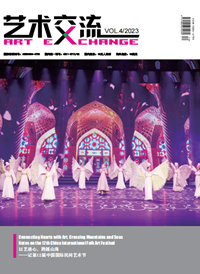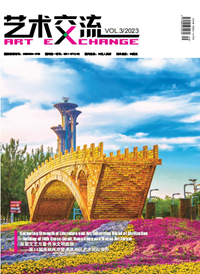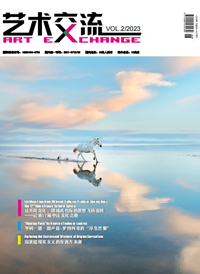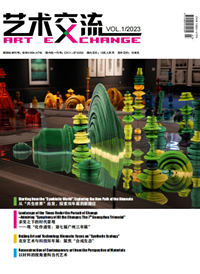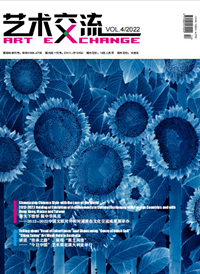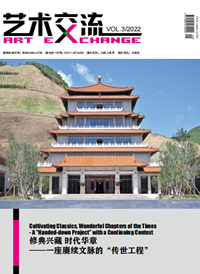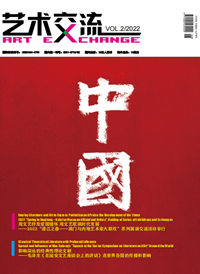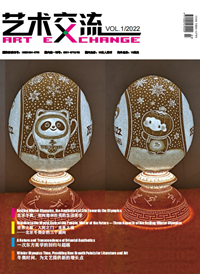
Trainees Tried out Chinese Paper Cut

Trainees Visited the 1st Ancient Street in Nanjing

Improvised Sketch after Viewing Contemporary Sculptures in Nanjing University of the Arts
From April 16 till May 6, CFLAC received 17 cultural officials and artists’ representatives from 10 English-speaking African countries, namely Sierra Leone, Zambia, Ghana, Mozambique, Tanzania, Malawi, Ethiopia, Nigeria, Uganda and Egypt, all of whom completed their 21-day-long research and training on literary and art organization management and administration. As the first international training project by CFLAC, this New China’s endeavor for international aid in literary and art organization management and administration, sponsored by Chinese Ministry of Commerce, undertaken by Research Institute of the State Administration of Press, Publication, Radio, Film and Television and implemented by Literary and Art Research Institute of CFLAC, aimed at enhancing mutual understanding between China and Africa and promoting bilateral exchange and friendship.The curriculum in this training project was abundant and comprehensive. Experts gave lectures on actual conditions and development of China, China’s cultural policies and mode of cultural management, the basic framework and mechanism of CFLAC as NGO as well as preservation and inheritance of Chinese folklore. Trainees were brought to interact with so many Chinese traditional culture and arts such as calligraphy, seal cutting, paper-cut, Kunqu opera and Taichi Boxing and visited museums, art colleges and academies, art ensembles and cultural companies to conduct on-the-spot teaching, inspection and exchange dialogues. In this way, African counterparts gained in-depth knowledge and vivid feelings about Chinese culture and Chinese literary and art organization management and administration.
Chinese artists’ voluntary events such as “Presenting Artistic Enjoyment to the People” aroused African friends’ curiosity. “How can CFLAC organize so many artists as volunteers to serve the people? You know, it is hardly possible for so many African artists to do such a similar thing.” African trainees naturally raised such questions in succession to Wang Zhan, president of Jiangsu Provincial Federation of Literary and Art Circles at the seminar.
Their journey in China started from Beijing to Nanjing, then to Gaochun and Suzhou, and they witnessed international metropolis, time-honored ancient capital for six dynasties, small city, ancient town and village. With a true showcase of Chinese culture and China presented to them, they mostly changed their misunderstanding of China.
“As Confucius said, ‘Virtue will never be alone without company’. Virtue means common development ideal and vision more than morality.” Fu Yixuan, the responsible leader of this training project and executive vice president of CFLAC Literary and Art Research Institute said. According to him, this project, in lines with the Spirit of 18th CPC National Congress, was an implementation of strategic plan of CFLAC’s 9th National Congress with stress on China-Africa cultural and art communications. “Passion for promoting our Chinese values abroad is far from enough to conduct foreign exchange and aid. We need to find what they are really interested in. Currently, they are demanded to know more about this largest developing country with an extreme acceleration as well as the mysterious and colorful Oriental culture. We take this point in our training plan so as to meet their demand and enable them to understand a true and open China.” Fu introduced.
By what means can China and Africa strengthen their cooperation? This question was an essential issue discussed among African trainees. Obviously, this calls for joint efforts from both sides. Culture, arts and tourism of African countries are supposed to be closer and completely open to China. Some cultural cooperation agreements were signed by African countries, but the process is extremely slow due to the linguistic barrier. China may establish some agencies such as Confucius Institute and art centers in the form of foreign aid for teaching and spreading Chinese culture free of charge, or give lessons on African languages and cultures in China.
Like a pair of legs of a person, economic trade and cultural exchange between China and Africa should be equally strong. Supposing trade obtained development while the people knows scarcely about each other’s history and culture, this pair of legs would be unsound and deformed. The foreign aid project used to be mainly of commercial trade, and this project of culture and arts is the first attempt, which bears a great significance.



